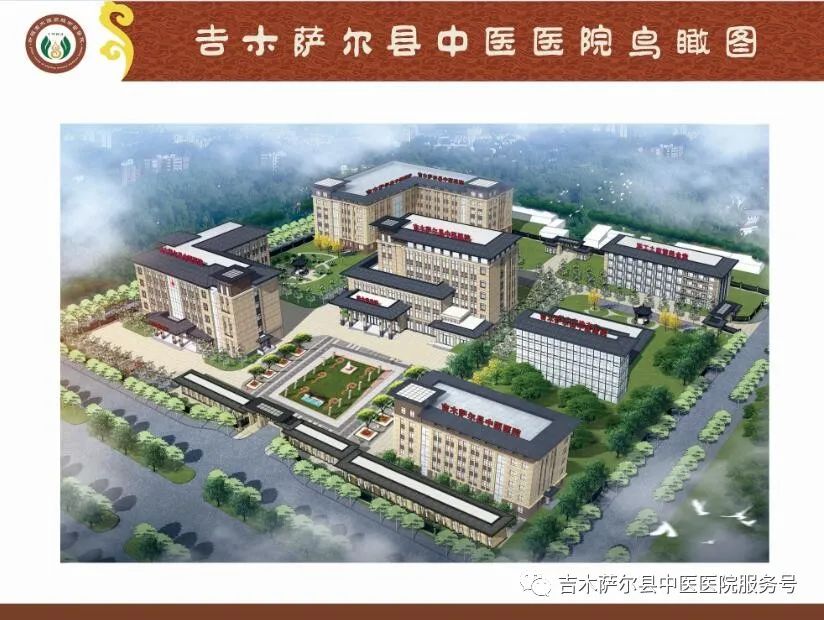 Body constitution refers to the inherent and relatively stable characteristics of individuals in terms of morphology and functional activities, which are related to psychological traits. The discussion of body constitution in Traditional Chinese Medicine (TCM) began in the Western Han Dynasty with the “Huangdi Neijing” (Yellow Emperor’s Inner Canon) and has developed into a comprehensive theoretical system over time. TCM body constitution theory has a wide range of applications, studying the relationship between different body types and diseases, aiming to improve constitution to achieve the goal of “preventing disease before it occurs” and individualized treatment.One prominent figure in this field is Master Wang Qi, who proposed the “Three Differentiation Treatment Model” which emphasizes identifying the constitution, preventing disease through constitution adjustment, treating disease by first adjusting the constitution, and integrating treatment with constitution adjustment. This approach often achieves the goal of addressing the root cause of diseases, contrasting with the localized treatments commonly used in Western medicine. By improving the constitution, which serves as the “soil,” it offers thorough treatment and prevents recurrence.
Body constitution refers to the inherent and relatively stable characteristics of individuals in terms of morphology and functional activities, which are related to psychological traits. The discussion of body constitution in Traditional Chinese Medicine (TCM) began in the Western Han Dynasty with the “Huangdi Neijing” (Yellow Emperor’s Inner Canon) and has developed into a comprehensive theoretical system over time. TCM body constitution theory has a wide range of applications, studying the relationship between different body types and diseases, aiming to improve constitution to achieve the goal of “preventing disease before it occurs” and individualized treatment.One prominent figure in this field is Master Wang Qi, who proposed the “Three Differentiation Treatment Model” which emphasizes identifying the constitution, preventing disease through constitution adjustment, treating disease by first adjusting the constitution, and integrating treatment with constitution adjustment. This approach often achieves the goal of addressing the root cause of diseases, contrasting with the localized treatments commonly used in Western medicine. By improving the constitution, which serves as the “soil,” it offers thorough treatment and prevents recurrence.
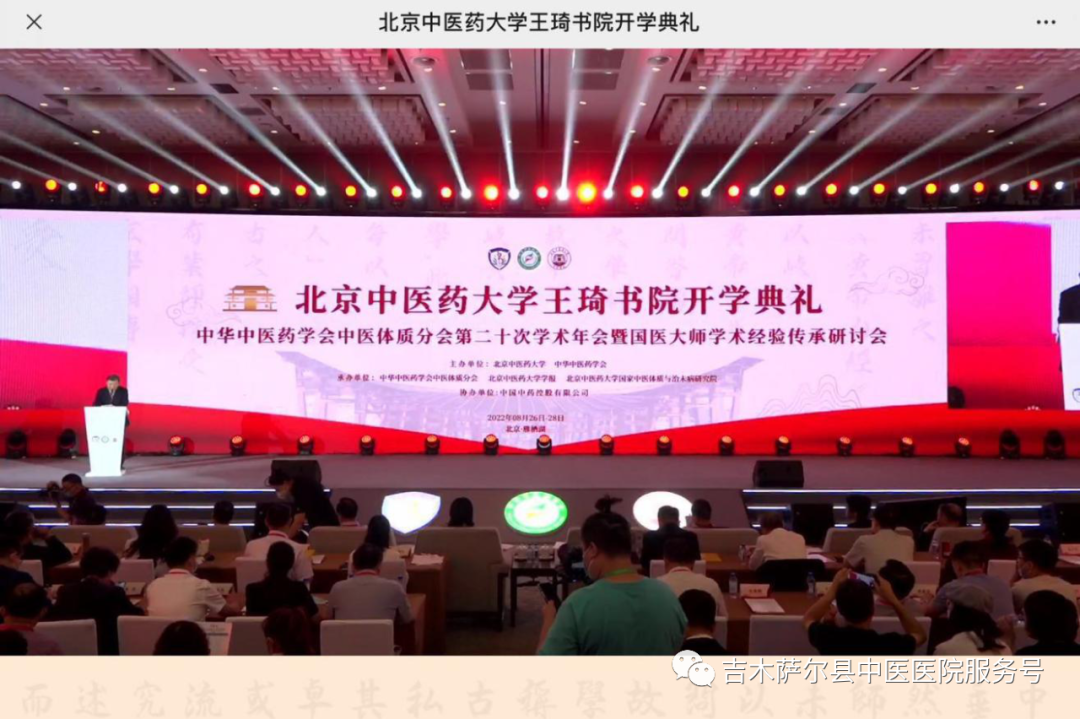
Identifying body constitution and regulating unfavorable constitutions are key components of “preventing disease before it occurs” and “preventing disease in advance.” On April 9, 2009, the standard “Classification and Determination of TCM Body Constitution” was officially released, marking the first document in China to guide and standardize TCM body constitution research and application. This standard aims to provide a basis for body constitution identification and the prevention and treatment of diseases related to body constitution, health maintenance, and health management, making body constitution classification scientific and standardized. The standard categorizes body constitution into nine types: Pinghe (Balanced), Qixu (Qi Deficiency), Yangxu (Yang Deficiency), Yinxu (Yin Deficiency), Tan Shi (Phlegm-Damp), Shi Re (Damp-Heat), Xue Yu (Blood Stasis), Qi Yu (Qi Stagnation), and Te Bing (Special Constitution). The latter eight are considered unfavorable constitutions, often presenting in combinations of two or more types in clinical practice.
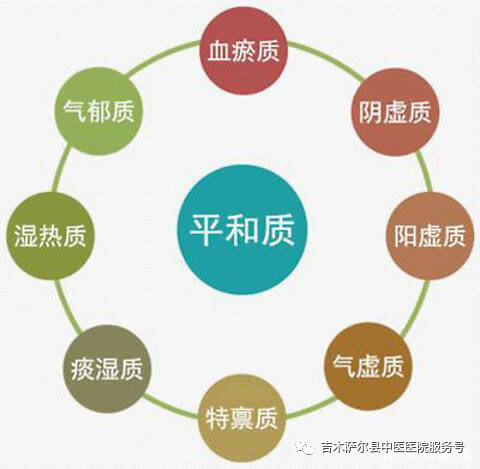
Tan Shi (Phlegm-Damp) constitution is one of the common unfavorable constitutions. How can one determine if they belong to the Tan Shi group? How should individuals with Tan Shi constitution self-regulate in daily life? Today, the Ji Mu Sa Er County Preventive Medicine Center will provide you with solutions!
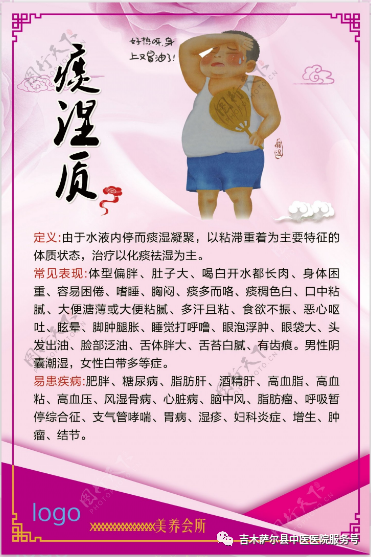
【Tan Shi Constitution Characteristics】Overall Characteristics: Phlegm and dampness accumulate, characterized by obesity, fullness in the abdomen, and a greasy tongue coating. This constitution is favored by wealth-related diseases, with the most notable feature being a broad physique. Individuals often have soft and plump abdomens, oily skin, excessive sweating, puffy eyes, and a tendency to feel drowsy.Constitution Causes: Congenital inheritance or excessive consumption of rich and fatty foods; frequent dining and drinking engagements, with little exercise and lack of fitness activities.Physical Characteristics: Obese body shape, soft and plump abdomen.Common Manifestations: Oily facial skin, excessive and sticky sweating, chest tightness, phlegm production, greasy or sweet mouth, preference for rich and sweet foods, greasy tongue coating, slippery pulse; prone to hair loss; enjoys sweet and sticky foods, dislikes exercise, and prefers sleeping.Psychological Characteristics: Generally mild-mannered, steady, and patient.Predisposition to Illness: Dizziness, chest obstruction, phlegm retention, etc.; prone to coronary heart disease, hypertension, hyperlipidemia, diabetes, gout, and other diseases.Key Population: Individuals with this constitution are often leaders in organizations; those frequently attending banquets and drinking parties, consuming beer, seafood, and meat, as well as middle-aged and elderly individuals living a comfortable lifestyle, predominantly male.Adaptability to External Environment: Poor adaptability to rainy seasons and humid environments.
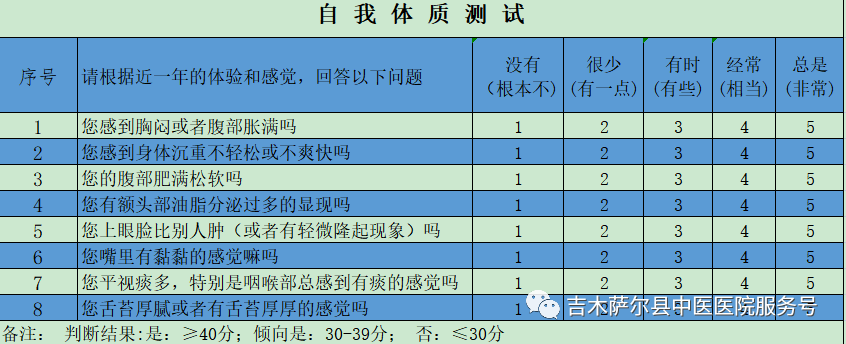
【Tan Shi Constitution Health Management Guidance】Mental Regulation:Individuals with Tan Shi constitution tend to have mild and steady personalities, often patient and tolerant. It is advisable to increase social activities, cultivate hobbies, and broaden knowledge to enhance perspectives. Properly arrange leisure, vacation, and rest activities to promote emotional well-being, regulate Qi, and improve constitution for better health.Dietary Recommendations:The principle is to maintain a light diet, avoiding fatty meats, sea cucumbers, and sweet, sticky, and greasy foods. It is beneficial to consume more green onions, garlic, seaweed, kelp, olives, nori, bamboo shoots, winter melon, radishes, kumquats, and mustard.
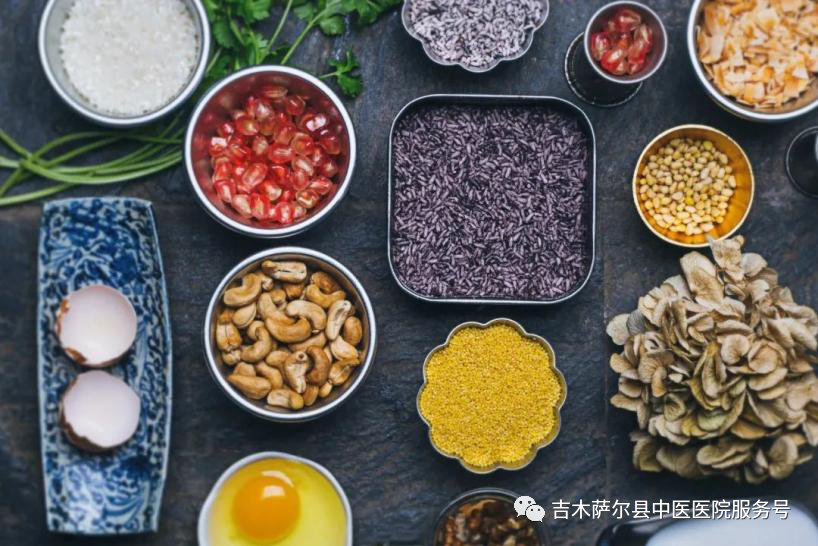
Medicinal Diet:1. Carp Soup
Ingredients: 1 carp (about 1000 grams), 50 grams of red beans, 6 grams each of dried tangerine peel and grass fruit, 3 grams of Fritillaria (Chuan Bei Mu), appropriate amounts of vegetable oil, ginger slices, green onion sections, and salt.
Preparation: Clean the carp, remove the gills and internal organs, and wash thoroughly; heat vegetable oil in a pot, stir-fry ginger slices and green onion sections until fragrant, then briefly fry the carp. Soak the red beans, Fritillaria, grass fruit, and dried tangerine peel in cold water for one hour, then stuff them into the carp’s belly. Boil water in a clay pot, add the carp, season with salt, and simmer on medium heat for 15 minutes.
Effect: Clears the lungs, transforms phlegm, strengthens the spleen, and promotes dampness elimination.2. Four Nut and Lentil Porridge
Ingredients: 20 grams each of Job’s tears and red beans, 15 grams each of white lentils, bitter apricot kernels, and white cardamom, 150 grams of japonica rice.
Preparation: Wash all ingredients thoroughly and soak in cold water for 1 hour; pour the soaked ingredients into a clay pot, bring to a boil over high heat, then reduce to low heat and simmer until the porridge thickens and the beans are soft.
Effect: Strengthens the spleen, promotes dampness elimination, diuretic, and laxative effects.3. Job’s Tears and Winter Melon Seed Tea
Ingredients: 30 grams of Job’s tears, 30 grams of winter melon seeds, appropriate amount of rock sugar.
Preparation: Wash Job’s tears and soak in cold water for half an hour; wash winter melon seeds and drain; boil water in a pot, add Job’s tears and winter melon seeds, and when the Job’s tears are soft, add rock sugar and simmer briefly, then strain and drink.
Effect: This tea has effects of lowering blood pressure, reducing blood sugar, eliminating edema, and promoting diuresis. Long-term consumption can improve rough skin, making it soft and tender, making it a natural skincare expert for women.
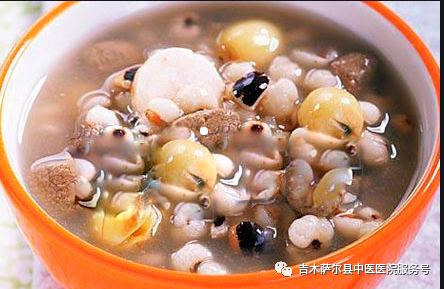
Exercise Prescription:Individuals with Tan Shi constitution tend to retain phlegm and dampness in the body, often being overweight and lethargic. Consistent moderate exercise is key to improving the unfavorable state of Tan Shi constitution. Exercise should be gradual, focusing on the duration rather than intensity. Depending on individual physical condition and tolerance, older individuals with Tan Shi constitution can engage in gentle and sustainable activities such as walking, brisk walking, hiking, Tai Chi, and fitness exercises, while younger individuals can participate in more vigorous activities like ball sports, cycling, swimming, running, and martial arts, aiming for at least 40 minutes of exercise each session.
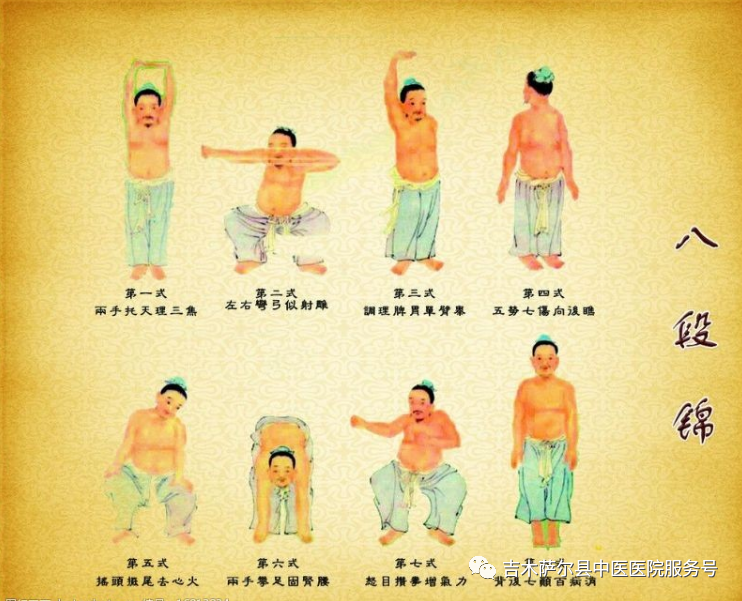
Medicinal Health Maintenance:One can take phlegm-resolving and dampness-eliminating formulas (common herbs include Bai Zhu (White Atractylodes), Cang Zhu (Atractylodes), Huang Qi (Astragalus), Fang Ji (Stephania), Ze Xie (Alisma), He Ye (Lotus Leaf), Ju Hong (Tangerine Peel), Sheng Pu Huang (Fresh Pollen), Sheng Da Huang (Fresh Rhubarb), and Ji Nei Jin (Chicken Gizzard Membrane)); Si Jun Zi Tang (Four Gentlemen Decoction), Liu Jun Zi Tang (Six Gentlemen Decoction), Wen Dan Tang (Warm Gallbladder Decoction), and Er Chen Tang (Two Aged Decoction).Meridian Massage:For individuals with Tan Shi constitution, meridian regulation focuses on strengthening the spleen, benefiting Qi, and promoting dampness elimination and phlegm transformation. Acupoints that can strengthen the spleen and benefit Qi include Pi Shu (Spleen Shu), Lu Shu (Lung Shu), Zu San Li (Stomach 36), and Qi Hai (Sea of Qi). Acupoints that can promote dampness elimination and phlegm transformation include Zhong Wan (Middle Cavity), Zu San Li (Stomach 36), and Feng Long (Stomach 40). These acupoints can be massaged, needled, or treated with moxibustion. For individuals with obesity, acupuncture points such as Zhong Wan, Tian Shu (Heavenly Pivot), Da Heng (Great Horizontal), Qu Chi (Pool at the Crook), Zhi Gou (Branching Ditch), Nei Ting (Inner Court), Feng Long, Shang Ju Xu (Upper Great Void), and Yin Ling Quan (Yin Mound Spring) can be used; for those who are drowsy, add Zhao Hai (Shining Sea) and Shen Mai (Shen Pulse); for those who are short of breath and reluctant to speak, add Tai Bai (Supreme White) and Qi Hai; for those with chest tightness, add Xuan Zhong (Central Sublime) and Nei Guan (Inner Pass); for those with palpitations, add Shen Men (Spirit Gate) and Xin Shu (Heart Shu). Individuals with Tan Shi constitution can also perform abdominal massage with the palm, using deep and even breathing, massaging the lower abdomen until it feels slightly warm. Additionally, moxibustion or ginger moxibustion can be applied to Zu San Li and Qi Hai for a duration of 15 minutes, every other day for optimal results.Life Tips:Individuals with Tan Shi constitution are characterized by excessive dampness, which can obstruct Qi and hinder Yang energy. It is advisable to engage in outdoor activities to promote Yang energy and facilitate Qi flow. Clothing should be breathable to allow moisture to escape, and regular sun exposure or sunbathing is recommended. In humid and cold weather, outdoor activities should be minimized to avoid cold and rain, and living spaces should be kept dry.Currently, the Ji Mu Sa Er County TCM Hospital’s Preventive Medicine Department has initiated TCM body constitution identification, meridian detection, infrared thermal imaging, and other projects. If you have the above symptoms or wish to better understand your body constitution type, you are welcome to come for body constitution identification and receive customized health guidance from experts!

【Expert Introduction】
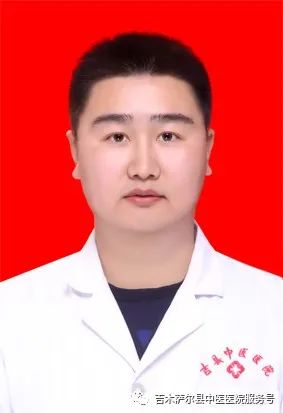
Wang Zhenxing, TCM attending physician, graduated from Xinjiang Medical University, currently serves as the deputy director of the Preventive Medicine Department at Ji Mu Sa Er County TCM Hospital. He has been engaged in TCM clinical work for nearly 10 years, participated in TCM general practitioner training in 2017, and studied under renowned TCM physician Chen Yanli, systematically learning TCM classics such as “Shang Han Lun” (Treatise on Cold Damage) and “Jin Gui Yao Lue” (Synopsis of Prescriptions of the Golden Chamber); in 2021, he studied at Xiamen TCM Hospital under Director Ye Wenbin of the Geriatrics Department and Deputy Director Huang Dunhuang of the Spleen and Stomach Department, learning classical prescriptions and applying the “Shang Han Lun” to treat common diseases and difficult, critical patients. In 2022, he participated in national training for geriatric talent at the First Affiliated Hospital of Xinjiang Medical University, focusing on clinical treatment of geriatric syndromes, always adhering to the philosophy of “preventing disease before it occurs, treating disease early, preventing changes in existing diseases, and preventing recurrence after illness.”Specialties: Utilizing the Six Meridians and Eight Principles for differential diagnosis and treatment, particularly for respiratory diseases: colds, chronic bronchitis, chronic cough, allergic rhinitis, and recurrent respiratory ailments; digestive system diseases: cold deficiency stomach disorders, gastrointestinal dysfunction, chronic colitis, chronic cholecystitis; gynecological and obstetric diseases: dysmenorrhea, irregular menstruation, female menopausal syndrome; rheumatic and bone diseases: joint pain, various pains caused by rheumatism; geriatric cardiovascular and cerebrovascular diseases: hypertension, coronary heart disease, cerebral infarction, sleep disorders, and chronic diseases treated with TCM adjustment.Address:Room 211, Second Floor of Outpatient DepartmentConsultation Phone:0994—6982095 18799688787 (WeChat same number)
Contributed by:Preventive Medicine Department
Edited by:Yang Tianwen
Proofread by: Kang Wenhuan Yang Weiwei
Reviewed by: Ji Xudong
Ji Mu Sa Er County TCM Hospital
